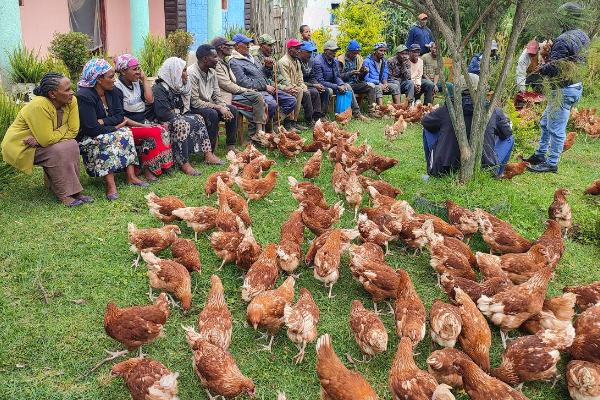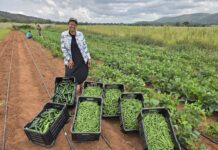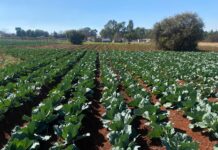The Alliance of Bioversity International and the International Center for Tropical Agriculture (CIAT) is collaborating with partners to introduce an innovative tool to help farmers in Central Ethiopia Regional State design optimized and efficient farm plans for enhanced productivity and resource conservation.
Under the CGIAR Initiative on Mixed Farming Systems, FarmDESIGN tool aims to strengthen sustainable intensification practices by giving farmers solutions such as optimizing the use of farm inputs, farming practices, combination of crop and livestock components, inter-cropping and crop diversification among others to enhance their smallholder farms’ performance.
According to an article by a team of writers published end of last month by CGIAR, the tool will also help farmers better understand the trade-offs/synergies between competing activities such as food production, income generation, and maintaining or increasing soil organic matter (SOM) balance.
By leveraging FarmDESIGN, farmers can optimize resource allocation and promote sustainable land management practices, leading to increased crop yields, healthier soil, and more resilient farms.
Through focus group discussions held with farmers in July 2024, the team successfully captured their prioritized interests and identified areas for improvement, initially employing the FarmDESIGN at the farm level in the Shurmu Kebele, Lemmo District of Ethiopia.
A focus on farmer training
The 3–6 October 2024 training session in Shurmu highlighted the success of the initiative’s capacity-building efforts. Twenty-one selected farmers from three different resource endowment groups (i.e. low, medium, and high income) participated in the training.
Recognizing the critical role of farmers in implementing sustainable practices and effectively applying recommended optimizations in the field, the Mixed Farming Initiative has prioritized hands-on training programs tailored to build capacity and enhance practical skills. Through targeted training programs, the Mixed Farming Systems Initiative team has equipped farmers with the hands-on knowledge and skills needed to manage their farms effectively and be able to apply FarmDESIGN optimization outputs,
The comprehensive training program in Shurmu included both theoretical instruction and practical demonstrations on topics ranging from manure management, compost production, intercropping, and home garden management. Farmers praised the relevance of the hands-on training sessions.
One of the participating farmers, Gezahign Abeiyo, indicated his willingness to apply the knowledge and skills acquired during the training program, saying: “I am excited to try what I learned. Next year, I will gather materials like leaves, grass, and animal waste to make compost. I have realized that compost is a much better way to enrich the soil than just spreading manure.”
Key takeaways
Farmers provided valuable feedback on the FarmDESIGN tool and its recommended outputs:
- Farmers understood the tool’s ability to provide tailored recommendations based on specific farm conditions.
- Farmers found the tool’s recommendations to be practical and applicable to their specific farming systems.
- The tool offers valuable information on various agricultural practices, such as composting, manure management, and intercropping, contributed to knowledge enhancement.
- The tool can be used as a valuable resource for developing practical skills such as record-keeping and planning.
To ensure the long-term impact and sustainability of FarmDESIGN optimization outcomes, continuous assessment and support are needed. By collaborating with the agricultural office in the Shurmu Kebele, the mixed farming systems initiative team continues to provide guidance and continuous support to farmers to implement sustainable practices. As Hellen Keller said, “Alone we can do so little; together we can do so much.”
This training was organized by the Alliance of Bioversity and CIAT, with the support of the CGIAR Initiative on Mixed Farming Systems, in collaboration with local partners including Lemmo Woreda and Wachemo University.








